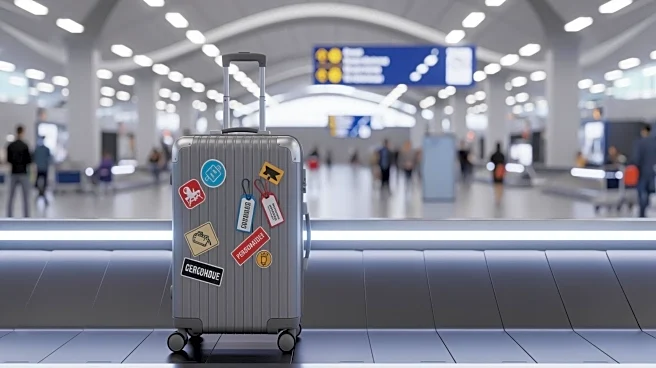What's Happening?
The global personalized travel and experiences market is anticipated to reach a valuation of $447.3 billion by 2030, growing at a compound annual growth rate (CAGR) of 17.8% from 2021 to 2030. This growth is driven by factors such as the increasing trend
of online bookings, customization of travel packages, and the influence of social media. Service providers, including flights, cruise lines, and hotels, are leveraging technology to better understand and meet individual customer needs. Despite the positive outlook, the market has faced significant setbacks due to the COVID-19 pandemic, which led to restrictions on domestic tourism and cancellations of major events, impacting the airline industry and reducing flight plans by more than half.
Why It's Important?
The projected growth of the personalized travel market highlights the increasing demand for tailored travel experiences, which is reshaping the tourism industry. This trend is significant for U.S. businesses involved in travel and hospitality, as they can capitalize on the growing consumer preference for personalized services. The market's expansion also underscores the importance of technology and data analytics in understanding consumer behavior and enhancing customer loyalty. However, the pandemic's impact serves as a reminder of the industry's vulnerability to global disruptions, emphasizing the need for adaptable business strategies.
What's Next?
As the market continues to grow, service providers are expected to further integrate technology to enhance personalization and customer satisfaction. The focus will likely be on improving data collection and analysis to better cater to individual preferences. Additionally, the industry may see increased investment in digital platforms and marketing strategies to attract and retain customers. The ongoing recovery from the pandemic will also play a crucial role in shaping future developments, with businesses needing to adapt to changing travel patterns and consumer expectations.
Beyond the Headlines
The shift towards personalized travel experiences may lead to ethical considerations regarding data privacy and the use of personal information. As companies collect more data to tailor services, they must ensure compliance with privacy regulations and maintain consumer trust. Furthermore, the emphasis on personalization could drive competition among service providers, leading to innovations in travel offerings and potentially altering traditional business models in the tourism sector.
















